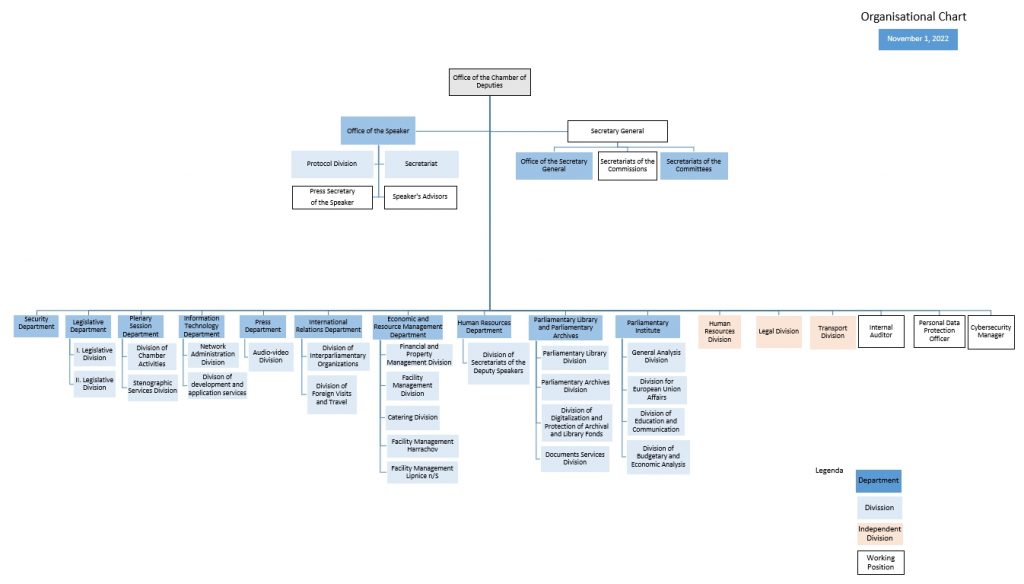The Chamber of Deputies and the Public
The public perceives the parliament as the supreme body that performs supervisory and legislative functions. What is often overlooked is the fact that the parliament is the main instrument of political representation and thus lends legitimacy to the entire constitutional and political system. It is all the more important continually to draw attention to the fact that without parliaments, the standard decision-making processes that we associate with a democratic society would not exist. Reaching out to the public is a natural ambition of politicians, who do so in the context of their value and programme preferences.
Therefore, the Office provides dignified services to politicians and journalists on the premises of the Chamber of Deputies. In addition, however, the public is also entitled to be sufficiently informed about the general nature of Czech parliamentarism, parliamentary procedures and the presentation of the importance of the representative body in a free society.
Therefore, the Office of the Chamber of Deputies itself takes an active approach to the presentation of parliamentary topics through its information policy, with the basic principles of its strategy being political neutrality, in which the content of communication and educational activities is defined by the provisions of the Constitution of the Czech Republic and related legislation.
For those interested in parliamentary events, the Information Centre of the Chamber of Deputies has been available to the public since 2006. Like the Senate, it provides information on parliamentary procedures and current events in the Chamber of Deputies. Those interested in parliamentary topics have access there to a wide range of information material produced by the professional staff of the Chamber of Deputies, taking into account different requirements on the scope, detail and expertise.
The Office of the Chamber of Deputies produces miscellaneous educational programmes aimed primarily at the younger generation and teachers. They combine efforts to educate important elements of society with an attractive experience of a visit to the Chamber of Deputies or a simulation of a parliamentary session.
The Office of the Chamber of Deputies also cooperates with scientific institutes, thus often initiating or supporting research and the subsequent popularisation of parliamentary topics among the professional public. The results of such research are often presented on the floor of the parliament.
Last but not least, the Office seeks to contribute to building the institutional memory of the parliament. In recent years, statuesand paintings of prominent parliamentary figures of the past, i.a. T. G. Masaryk and F. L. Rieger, have been installed on the premises of the Chamber of Deputies. Historical anniversaries from the history of the Czech Chamber of Deputies are commemorated by exhibitions in the foyer of the Chamber of Deputies. Many of the representative rooms have been named after historically important figures of the representative body in the last two centuries of Czech parliamentarism. In this way, too, the Office Chamber of Deputies is trying to contribute to the awareness that the parliament has an indisputable place in the organism of any free and democratic society.

 +420 257 174 001
+420 257 174 001  PlisekM@psp.cz
PlisekM@psp.cz 

